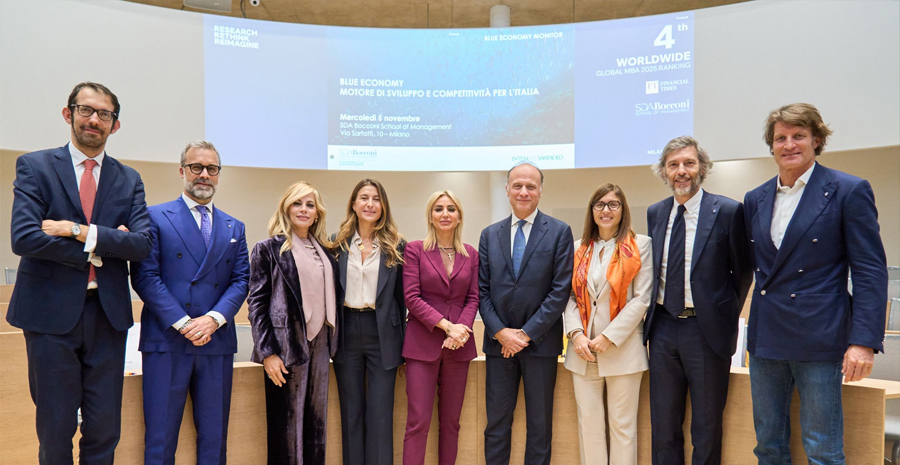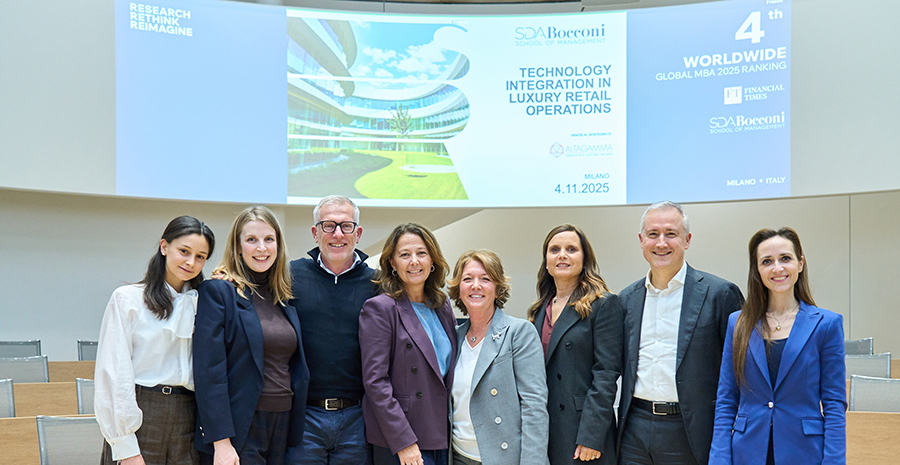Sustainability between thought and action, an interview with Renato J. Orsato
SDA Bocconi continues to travel towards what is no longer the prospect of the future but the need of the present, sustainability. Renato J. Orsato can certainly be defined as a pioneer of sustainability. An Italian-Brazilian, he has recently been appointed SDA Bocconi Professor of Practice. He has been studying green motives and strategies since the last century, starting in 1996 with a PhD in Sydney. Three years later, he began publishing on these topics, when there was still “very little research on the subject,” he recalls. “The text I worked on in 2008 became more and more relevant and was continually enriched with new cases.” He then continued his career at an international level, working in academia, and as a manager and an entrepreneur, on subjects ranging from low-emission vehicles to the development of incubators and accelerators for sustainable enterprises. All this balanced by a guiding principle: eco-sustainability is a collective and individual effort of research and application, with many whys and lots of hows.
You first graduated as a civil engineer in Brazil and then began a sort of journey around the world, between Australia, France, Sweden and now Italy, between management and environmental economics, between academia and business. What baggage did you bring along and how do you consider your focus of interest today, sustainability?
“First and foremost, I realized that the challenge is global. In every corner of the world I saw the same problems, and the barriers to solve them were similar (in this respect, we’re indeed a globalized world). On the positive side, I was also able to collect success stories in different parts of the world, from New Zealand to Denmark and Brazil… which also indicates that there are people concerned with the problem and willing to try hard to find solutions, everywhere.
Nowadays, I’m mostly interested in how technologies, the blockchain for example, that enable the deployment of innovative business models can help the transition to more sustainable business organizations and societies.”
Ten years ago, you created greenApes, now a benefit corporation. It is an app that promotes eco-sustainable lifestyles through digital solutions, based on moral, social and economic incentives. What does the entrepreneur Orsato’s “adventure” represent for professor Orsato?
“As an academic, I have always worked using business cases (that succeeded or failed) to learn about and teach sustainability. Out of my research I realized that citizens/consumers will pay a price to be more sustainable. They often make substantial efforts to be more sustainable than the average person. For instance, they separate their waste for recycling, they walk, cycle or take public transport instead of using private cars; they pay price-premiums for local and eco-labeled products, green energy, etc. While they are doing all this, they often feel that they ‘are alone in the jungle’, that nobody else cares.
greenApes (for we ‘naked apes’ can be compatible with our environment) addresses these issues. For the people who are already behaving ‘green’, the platform helps them form a community, and rewards their efforts. For the people who are sensitized to sustainability issues but are still reluctant to take action, greenApes provides incentives – tangible (credits in the partner shops) and intangible (social support) – for them to take real-world actions. Finally, the owners of sustainability-driven businesses can also find a supporting ecosystem where eco-products and services are visible and valued by a community of green citizens. Therefore, greenApes puts together citizens and businesses who are committed to sustainable lifestyles. In other words, it contributes to creating an ecosystem for a sustainable economy.
The entrepreneurship adventure provided depth in the understanding of the challenges faced by startups and the enormous difficulties involved in the execution of digital business platforms for sustainability. Overall, Professor Orsato has learned a lot from this experience, and is now transferring such knowledge to his students.”
A personal note, maybe not only personal – Does being an Italian-Brazilian have a particular meaning? And what stimuli do you feel you are receiving and can give today, while being around the new SDA campus?
“In February 1882, Domenico Orsato arrived in the southern part of Brazil with his wife Maria Bellò and seven children. My great-grandfather was born during the crossing of the Atlantic. After five generations, a lot of work and great hardship, on February 2022 (exactly 140 years later), I landed in Italy to work as a Professor at SDA Bocconi – a University I have tremendous respect for.
Being an Italian-Brasilian, in this case, quasi-literally embodies the great challenges involved in connecting continents. In this respect, my main stimulus at SDA relates to making everyone feel connected to everybody else in the world. After all, in order to have more sustainable societies, we need to see the entire planet as our home, and everyone in it as brothers and sisters. By doing my work at SDA I hope I can empower students to be the sustainability champions in their organizations so that, together, we can eventually create a system of Global Care.”
To stay with the green apes metaphor, a significant evolutionary leap in the way we conceive the economy and our social coexistence.
SDA Bocconi School of Management
Blue is the new green: Responsible use of ...

Technology with a soul amplifies human value ...




